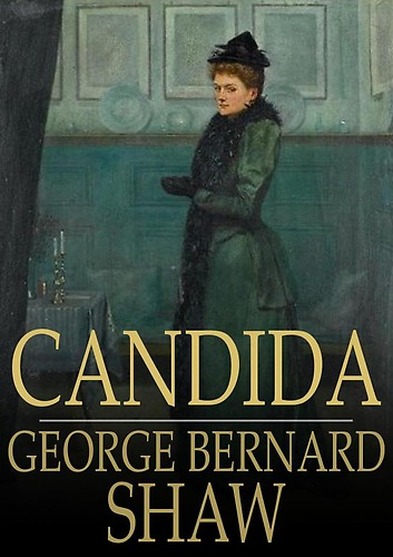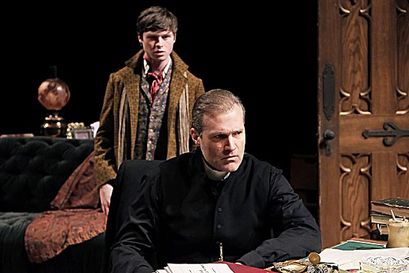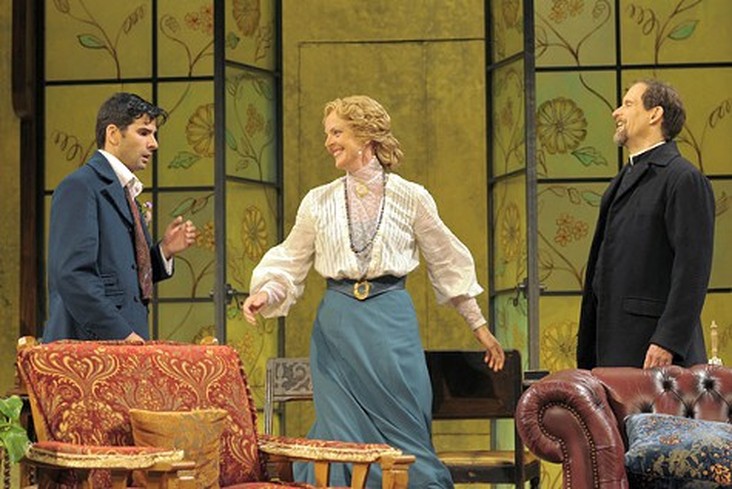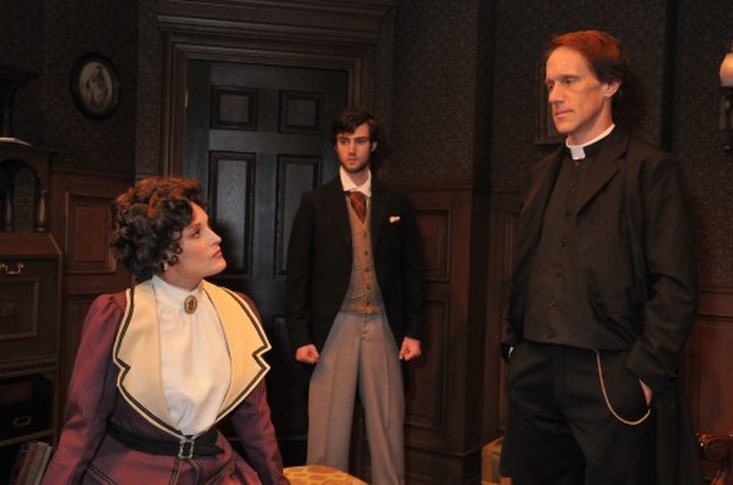 The Communist Manifesto, Karl Mark “You are horrified at our intending to do away with private property. But in your existing society, private property is already done away with for nine tenths of the population; its existence for the few is solely due to its non-existence in the hands of those nine tenths. You reproach us, therefore, with intending to do away with a form of property, the necessary condition for whose existence is the non-existence of any property for the immense majority of society.” Fear and Trembling, Amélie Nothomb “The accountants who spent ten hours a day copying out numbers were, to my mind, victims sacrificed on the altar of a divinity wholly bereft of either greatness or mystery. These humble creatures were devoting their entire lives to a reality beyond their grasp. In days gone by they might have at least believed there was some purpose to their servitude. Now they no longer had any illusions. They were giving up their lives for nothing, and they knew it. Everyone knows that Japan has the highest suicide rate of any country in the world. What surprised me was that suicides were not more common.” Putain, Nelly Arcan “[...] vous savez bien que je n'en voudrai pas de cet homme car je ne veux que ce que je ne peux pas avoir, comme vous par exemple, je vous veux parce je ne vous aurai jamais, c'est simple et sans issue, c'est désespérément logique, le désir qui ne connaît de réalité que lui-même, et vous voyez bien que je mérite la mort pour cet entêtement de rat qui ne sait pas rebrousser chemin, pour cet acharnement de bestiole aveugle qui finira par crever d'avoir trop avancé, vous verrez bien, je mourrai de ce compromis que je ne veux pas faire, et tant pis pour tous les hommes sains et équilibrés qui m'aimeront et tant pis pour moi surtout qui en aimerai d'autres, on finit tous par mourir de la discordance de nos amours.” How Should a Person Be?: A Novel, Sheila Heti “Most people live their entire lives with their clothes on, and even if they wanted to, couldn't take them off. Then there are those who cannot put them on. They are the ones who live their lives not just as people but as examples of people. They are destined to expose every part of themselves, so the rest of us can know what it means to be a human. Most people lead their private lives. They have been given a natural modesty that feels to them like morality, but it's not -- it's luck. They shake their heads at the people with their clothes off rather than learning about human life from their example, but they are wrong to act so superior. Some of us have to be naked, so the rest can be exempted by fate.” Ce samedi il pleuvait, Annick Lefebvre “Ma langue va se délier pis splasher de l’acide généalogique sur le beau patio de polymère synthétique de Ludovic. Je vais faire corps avec la scie à chaîne pis tronçonner le tricot familial maillé serré qui nous soude faussement sous prétexte que nos souches sont les mêmes. Ça va faire brailler Julie qui va se rendre compte qu’elle possède la faculté de se répandre par spasmes de sanglots libérateurs, entre un buzz de BlackBerry, une névrose cheap pis une brochette de crevettes thaï grillées à point.” Silk, Alessandro Baricco “And a while later: ‘It is a strange sort of pain.’ Softly. ‘To die of yearning for something you'll never experience.’” The Skin of Our Teeth, Thornton Wilder “I didn't marry you because you were perfect. I didn't even marry you because I loved you. I married you because you gave me a promise. That promise made up for your faults. And the promise I gave you made up for mine. Two imperfect people got married and it was the promise that made the marriage. And when our children were growing up, it wasn't a house that protected them; and it wasn't our love that protected them -- it was that promise.” Headlight Sixteen “I took a deep breath and closed my eyes. I thought of all the invisible particles that constituted the world, like a cloud of tiny little seahorses. The face of a princess embedded in the fading rays of the sun. I listened for my heartbeat. Closely. Nothing. Everything was fine.” -Atli Bollason, “Sandy’s Gallery” Candida, George Bernard Shaw “Wicked people means people who have no love: therefore they have no shame. They have the power to ask love because they don't need it: they have the power to offer it because they have none to give. (He collapses into his seat, and adds, mournfully) But we, who have love, and long to mingle it with the love of others: we cannot utter a word.” http://www.localgestures.com/3/post/2013/01/in-which-we-talk-to-ourselves-out-loud.html Scrivener Creative Review Presents: Teen Poetry @ Brutopia Let’s face it, most readings play like they’re put on by writers who’ve never been exposed to any other kind of performance, nor had the pleasure of Israel’s cock. The folks at Scrivener Creative Review had the brilliant idea of having writers read material from their teenage years. In retrospect, the angst-filled writings proved hilarious, causing the audience to burst into laughter more often than at any other reading I’ve ever attended. Which caused me to think: what’s the point of working so hard on so-called good writing if it gets less of a reaction than our less self-conscious teen musings?
0 Comments
 Which man will Candida choose? MARCHBANKS: I know. You feel that you could love anybody that offered– PROSERPINE (exasperated): Anybody that offered! No, I do not. What do you take me for? MARCHBANKS (discouraged): No use. You won't make me real answers – only those things that everybody says. MARCHBANKS (hopelessly): Nothing that's worth saying is proper. One of the biggest realizations I’ve had this past year is that there are relationship people and single people. Relationship people continue to be so even when they are single; those periods are usually brief anyway. Single people continue to be so even when they are in relationships; those periods are usually brief anyway. In 1986, Newsweek caused a firestorm by claiming that women over 40 were “more likely to be killed by a terrorist” than to find a husband. "’The Marriage Crunch’ was based on a study by Harvard and Yale researchers that projected college-educated women had a 20 percent chance of getting married if they were still single at 30, a 5 percent chance at age 35, and just a 2.6 percent chance at age 40.” (Source: http://abcnews.go.com/GMA/story?id=2007889&page=1) Though the statement that women over 40 are more likely to be killed by a terrorist than to find a husband seems ludicrous, it is only so if one believes that a relationship is something that happens to someone, like getting killed by a terrorist or struck by lightning. However, if one looks at relationships as something that one is, it oddly starts making sense. Someone who was in a relationship when they were 25 is more likely to be in a relationship when they are 30 (or 35 or 40) than someone who wasn’t. Being in a relationship is not like playing the lotto; it is not a simple matter of chance. As if to confirm my beliefs, at the end of 2012, I happened to read George Bernard Shaw’s Candida. In some way – though more poetically, of course – I feel he is saying the same thing. Morell and Candida are relationship people. Marchbanks and Proserpine are single people. The play was first published in 1898, which proves that some things don’t change, except maybe the names we give them. For example, Marchbanks is a hipster. If you don’t believe me, read Shaw’s lengthy but appropriately revealing introduction to the character: "He is a strange, shy youth of eighteen, slight, effeminate, with a delicate childish voice, and a hunted tormented expression and shrinking manner that shew the painful sensitiveness of very swift and acute apprehensiveness in youth, before the character has grown to its full strength. […] He is so uncommon as to be almost unearthly; and to prosaic people [i.e. dudebros] there is something noxious in this unearthliness, just as to poetic people [i.e. other hipsters] there is something angelic in it. His dress is anarchic. He wears an old blue serge jacket, unbuttoned, over a woolen lawn tennis shirt, with a silk handkerchief for a cravat, trousers matching the jacket, and brown canvas shoes. In these garments he has apparently lain in the heather and waded through the waters; and there is no evidence of his having ever brushed them.” I’ll be perfectly honest: I might have overrelated to Marchbanks. If he lived in the internet age, Marchbanks would be at his computer writing “missed connections” on Craigslist, though in his hands they would magically manage to escape being utterly nauseating. (I, of course, have never been guilty of writing internet bullshit ripe for ridicule.) Though he feels intensely, he is crippled when comes the time to act out on his emotions: “You must be [shy]: that is the reason there are so few love affairs in the world,” he secretly tells Proserpine, projecting himself onto her, though he is not wrong in doing so. “We all go about longing for love: it is the first need of our natures, the first prayer of our hearts; but we dare not utter our longing: we are too shy.” Marchbanks realizes that love (I mean a relationship) is not something that merely happens, that it is conjured up in the least magical ways, as he continues: “I go about in search of love; and I find it in unmeasured stores in the bosoms of others. But when I try to ask for it, this horrible shyness strangles me; and I stand dumb, or worse than dumb, saying meaningless things—foolish lies. And I see the affection I am longing for given to dogs and cats and pet birds, because they come and ask for it. (Almost whispering.) It must be asked for: it is like a ghost: it cannot speak unless it is first spoken to. (At his normal pitch, but with deep melancholy.) All the love in the world is longing to speak; only it dare not, because it is shy, shy, shy. That is the world's tragedy.” He has no illusions about relationships. He understands that they are not (arguably because they cannot be) based on feelings alone; it would make them too vulnerable. The strength of such relationships can be found in that love cannot disappear if it were never there. It gives the relationship a stronger footing; there is no rug to be pulled from under it. MARCHBANKS (scrambling up almost fiercely): Wicked people means people who have no love: therefore they have no shame. They have the power to ask love because they don't need it: they have the power to offer it because they have none to give. (He collapses into his seat, and adds, mournfully) But we, who have love, and long to mingle it with the love of others: we cannot utter a word. Though he reverses cause and consequence, Marchbanks still has a sense that his unfulfilled love feeds his art. “That is what all poets do: they talk to themselves out loud; and the world overhears them,” he admits. “But it's horribly lonely not to hear someone else talk sometimes.” Of course, were he to hear someone else talk, he might no longer be a poet. Poetry comes from a lack. If everything were to be fulfilled, nothing would ever need to be written or spoken. We could all look at one another knowingly. The all-knowing omnipotent Candida also realizes the fundamental difference between Marchbanks and her husband Morell. When asked to choose between the two, Candida – with her motherly love – picks the weaker of the two. At this statement, both men are devastated. This proves that, despite his dramatic nature, Marchbanks is still more self-aware than Morell. CANDIDA: You remember what you told me about yourself, Eugene: how nobody has cared for you since your old nurse died: how those clever, fashionable sisters and successful brothers of yours were your mother's and father's pets: how miserable you were at Eton: how your father is trying to starve you into returning to Oxford: how you have had to live without comfort or welcome or refuge, always lonely, and nearly always disliked and misunderstood, poor boy! Candida understands that, despite all appearances to the contrary, Marchbanks is the stronger of the two, for he has learned to be alone, so he can be. By weakly trying to defend himself, he only proves her right: “I had my books. I had Nature. And at last I met you.” The things he has: not human beings; the human being he could only meet, never have.
Candida continues to outline the difference between the two men by turning her attention to her husband: “Now I want you to look at this other boy here—my boy—spoiled from his cradle. We go once a fortnight to see his parents. You should come with us, Eugene, and see the pictures of the hero of that household. James as a baby! the most wonderful of all babies. James holding his first school prize, won at the ripe age of eight! James as the captain of his eleven! James in his first frock coat! James under all sorts of glorious circumstances! You know how strong he is (I hope he didn't hurt you)—how clever he is—how happy! (With deepening gravity.) Ask James's mother and his three sisters what it cost to save James the trouble of doing anything but be strong and clever and happy. Ask me what it costs to be James's mother and three sisters and wife and mother to his children all in one.” Morell is the weaker of the two because he has never been alone and therefore has never learned to be alone. He couldn’t. He doesn’t love Candida with the same passion that Marchbanks loves her; but he has something more important working in his favour: he needs her; needs her in a way that Marchbanks will never need her, for the poet can be alone. Morell is not alone because he could not function otherwise. If Candida were to die, he would need to find a new wife as quickly as possible. As Marchbanks capitulates, Morell demonstrates that his own alterity still prevents him from understanding the poet: MARCHBANKS: Out, then, into the night with me! CANDIDA (rising quickly and intercepting him): You are not going like that, Eugene? MARCHBANKS (with the ring of a man's voice—no longer a boy's—in the words): I know the hour when it strikes. I am impatient to do what must be done. MORELL (rising from his knee, alarmed): Candida: don't let him do anything rash. CANDIDA (confident, smiling at Eugene): Oh, there is no fear. He has learnt to live without happiness. MARCHBANKS: I no longer desire happiness: life is nobler than that. Before he leaves, Candida attempts to rationalize with Marchbanks; but, with his poetic mind, he out-rationalizes her and even manages to have the last word: CANDIDA: One last word. (He stops, but without turning to her.) How old are you, Eugene? MARCHBANKS: As old as the world now. This morning I was eighteen. CANDIDA (going to him, and standing behind him with one hand caressingly on his shoulder): Eighteen! Will you, for my sake, make a little poem out of the two sentences I am going to say to you? And will you promise to repeat it to yourself whenever you think of me? MARCHBANKS (without moving): Say the sentences. CANDIDA: When I am thirty, she will be forty-five. When I am sixty, she will be seventy-five. MARCHBANKS (turning to her): In a hundred years, we shall be the same age. But I have a better secret than that in my heart. Let me go now. The night outside grows impatient. CANDIDA: Good-bye. (She takes his face in her hands; and as he divines her intention and bends his knee, she kisses his forehead. Then he flies out into the night. She turns to Morell, holding out her arms to him.) Ah, James! (They embrace. But they do not know the secret in the poet's heart.) |
Sylvain Verstricht
has an MA in Film Studies and works in contemporary dance. His fiction has appeared in Headlight Anthology, Cactus Heart, and Birkensnake. Archives
October 2023
Categories
All
|


 RSS Feed
RSS Feed